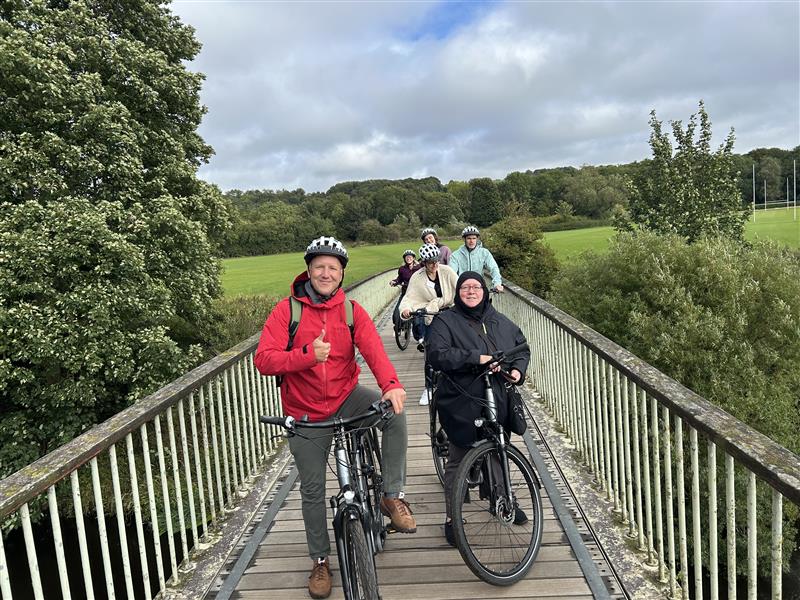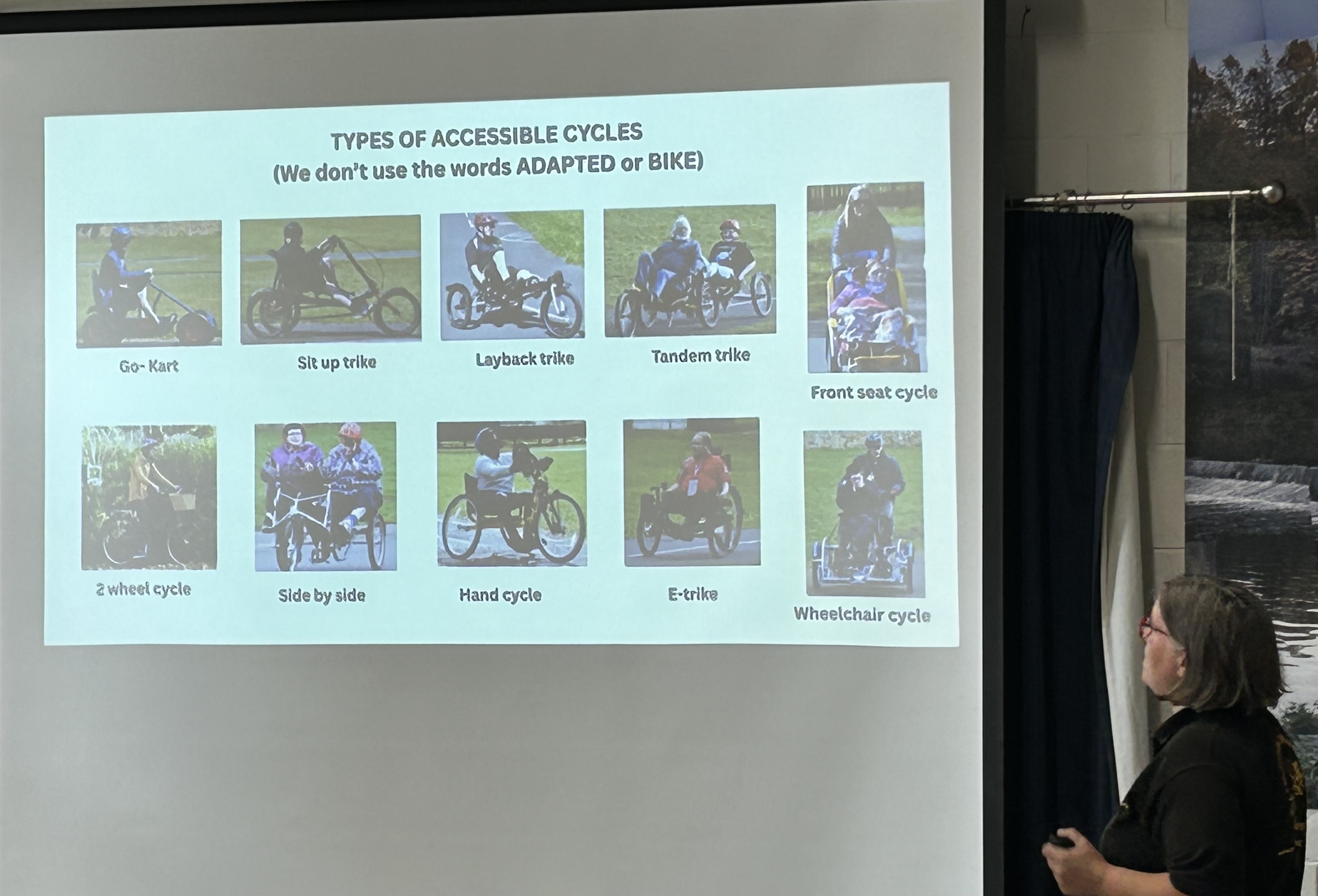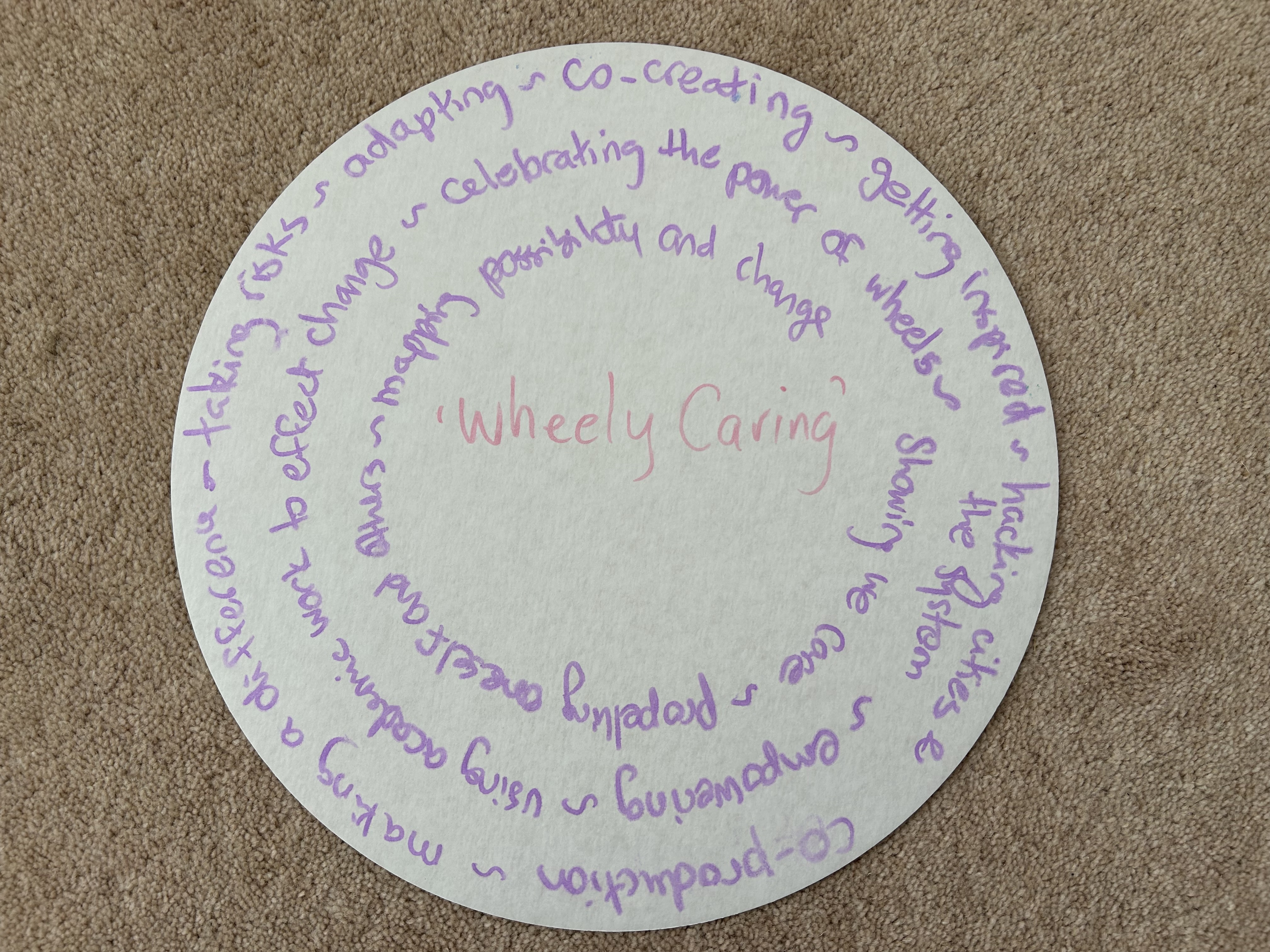Reflections on a Wheely Workshop

Read the reflections on a one-day workshop, hosted by the Moving Bodies Lab, led by Prof. Cassie Phoenix, explored research and creative practice that engaged with an array of wheeled technologies; bicycles, wheelchairs, skateboards and prams.
Wheeled technologies create diverse possibilities for the human body, facilitating new forms of mobility, access, performance, and care. Their potential to not only influence but re-imagine health and wellbeing makes them an exciting focus for both academics, artists, and policy-makers. However, the ways in which they are used by individuals and communities depends on a range of influences, from place-based factors to early childhood experiences, as well as different networks of care and support.

A one-day workshop, hosted by the Moving Bodies Lab, led by Prof. Cassie Phoenix, explored research and creative practice that engaged with an array of wheeled technologies; bicycles, wheelchairs, skateboards and prams. Joined by a varied group of attendees including representatives from local authorities, community cycling providers, and academics spanning a range of disciplines, we considered questions such as how these technologies might afford different experiences of space, mobility, and performance? What opportunities and challenges do they offer to planning departments, policy-makers, and public health strategies? And what methodologies might be most effective for understanding how they are experienced in everyday life?
Organised around the themes of Communities, Technologies, and (Disrupting) Space, our programme included presentations on:
What (else) can bikes do? Findings from a North-East participatory project,
David Martin, Dave Buchan, Cassie Phoenix & Emily Tupper
Moving Bodies Lab and Department of Sport & Exercise Sciences, Durham University.
The Behaviour Change Wheel (2014) to build culture of cycling: Service design for modal shift.
Mariam Draaijer, Joyriders
The Erosion of Care? Mountain biking on a damaged planet
Jim Cherrington, Sheffield Hallam University
Changing the Game: Athlete agency and wheeled disability sport technologies
Samuel Goldstone-Brady, Glasgow University & National Paralympic Heritage Trust
Getting people with disabilities cycling
Sara Bateman, Gateway Wheelers
Perambulator: a walking exploration of parenting mobilities
Claire Qualman, University of East London
Artistic Allyship in the Strategic Entitlement of Non-Traditional Skateboarders
Harry Meadley, Leeds Beckett University

In keeping with our theme for the day, many attendees took up the opportunity to trial an e-bike, and head out for a lunchtime ride along the banks of the River Wear - something, we agreed, should become a feature of all future workshops!



/prod01/prodbucket01/media/durham-university/departments-/sport-and-exercise-sciences/sport/86041.jpg)